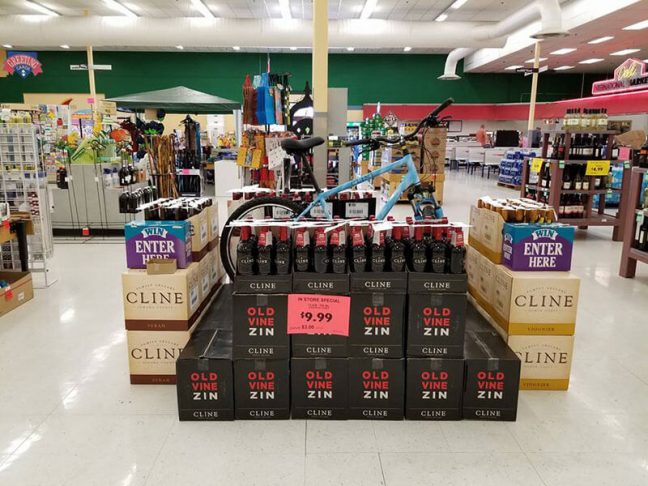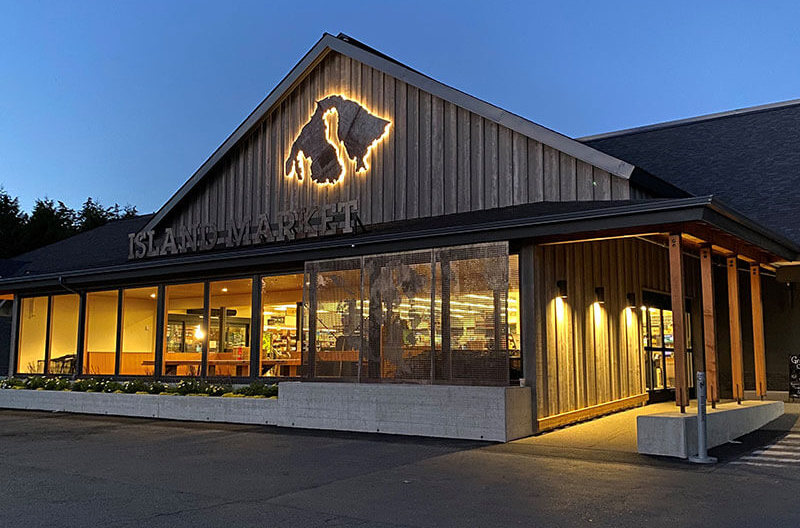Creativity, flexibility key to feeding communities
by Eric Pereira / staff writer
Ali Hayton is facing a unique and perilous situation with the market she owns in the northwestern Washington town of Point Roberts.
None of the grocery store’s trucks, employees or Hayton herself have had any problems getting through the U.S.-Canada border during the COVID-19 pandemic, as they are all deemed essential. “Our customers, however, are a different story,” she said.

Point Roberts is a small town near Blaine, Washington and is in a pene-exclave – the only one in U.S. and Canada that does not have an agreement between the two countries allowing travel, according to the Washington Food Industry Association.
“Although Point Roberts is on U.S. soil, in order to visit anywhere else in the U.S., individuals must cross into Canada, then cross back in the United States,” according to the WFIA.
The only grocery store in the town, Point Roberts International Marketplace, has taken a substantial hit on its business due to the border closure and inability of U.S. and Canada to come to an agreement.
“We lost 80 percent of our customers and 70 percent of our revenue,” Hayton told The Shelby Report. “The greatest lesson there is that we cannot rely on our international business to survive. We need to have a better way to adapt to an immediate severing of our customer count.”
Hayton added that max sales pre-COVID-19 in the last few years have been upward of $350,000 per week. “The last few months, we haven’t even hit $60,000,” she said.
Her local state representative is trying to set up a video call meeting between Gov. Jay Inslee, the British Columbia premiere, the Point Roberts Chamber of Commerce and Hayton to discuss options, but there has been “no movement on opening the border” she said on April 26.
Another hurdle comes in the store’s supply chain.
“The big corporate stores seem to be getting all of their supplies just fine. We are still at less than 75 percent fill rate on our orders,” Hayton said. “Until something is done about anti-trust and squeezing the little guy out, we will continue to face shortages.”
Moving south in Washington to Orcas Island, Jacob Linnes, general manager of Orcas Island Market said he thinks the pandemic has changed grocers’ mindsets. The greatest lesson he has learned is to put his employees’ feelings and safety ahead of everything.
“I think the pandemic has forced us all to think differently about what service is and how to meet our customers on the level they deserve,” said Linnes, adding that stores need to remain nimble.
“Today it may be hand-washing stations and plexiglass, but tomorrow may bring new needs. Bottom line is we need to listen to our customers and respond accordingly,” he said.
Running a store on a ferry-serviced island presents challenges of its own, according to Linnes. However, he can’t lose sight of fulfilling the store’s mission.
“When the supple chain is limited, we aren’t worried about losing business or customers to a competitor, we are focused on feeding our community,” he said. “We have to be creative in the way we get products and having a diverse set of suppliers, as well as backup plans in place to get key items. This last year we have found more places to order toilet paper from than I ever imagined.”
Although it seems that disruption will continue with online and other new technologies becoming more prevalent in the grocery industry, Linnes remains optimistic.
“I believe the independent grocer is positioned very well to win with providing an authentic customer experience,” he said. “We know our customers and treat them like family, which is very hard to compete with. My bet is on creating a more engaging and friction-free shopping experience by listening to our customers and wow-ing them with kindness and authenticity.”

